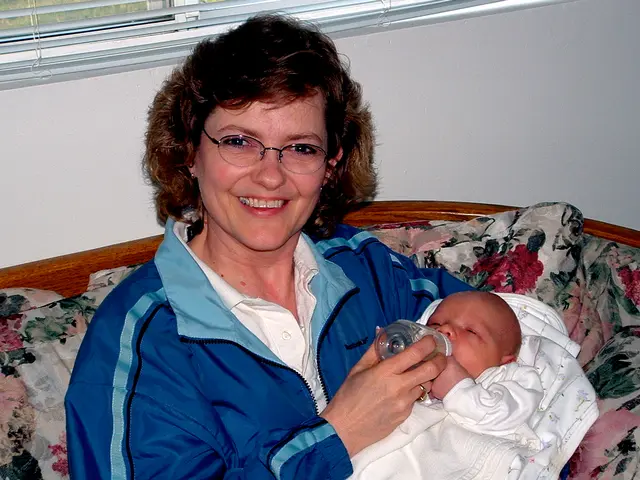Women secure egg-freezing arrangement with VfGH: 'Buying temporal reproductive liberty'
Unveiling Social Egg Freezing Debate: The Quest for Personal Freedom
On a Friday morning, the Constitutional Court echoed with discussions revolving around the liberation and pressure women face, the ticking biological clock, and the importance of self-determination.Even somewhat uncharacteristically, the topic of romance swirled within the halls of Austria's highest court.
At the heart of the matter lies the case of Cornelia M., yearning to embrace motherhood later in life. Due to the prohibition of freezing eggs without medical need in Austria (commonly known as "Social Egg Freezing"), she argues that her right to privacy and family life, as outlined in Article 8 of the European Convention on Human Rights, is being violated and seeks for this law to be overturned by the VfGH.
Social Egg Freezing Explained
In countries like Germany, Switzerland, and France, "Social Egg Freezing" is already permitted. Here's how the process works: Women are administered hormones to prepare their bodies, followed by a procedure where a needle is inserted through the vagina to puncture the ovaries, aiming to retrieve around ten eggs. These are then "cryopreserved" at an astounding -196 degrees and can theoretically be stored indefinitely. Once needed, the cells are thawed, fertilized in vitro with sperm, and, if an embryo develops, implanted in the uterus. The overall cost of a treatment cycle varies between 4,000 and 5,000 euros, with annual storage costs for the eggs amounting to approximately 400 euros.
The Advocates for "Egg Freezing"
Several experts from diverse fields delivered compelling arguments in favor of "Egg Freezing". Medical professionals assented that the quality of eggs declines with age, leading to increasing pressure on women to settle personal and family matters between the ages of 30 and 40. "Social Egg Freezing" would provide peace of mind by allowing women the freedom to plan their future. In essence, frozen eggs could serve as a "savings account" for motherhood.
One crucial aspect brought up was the "romantic" ramifications. As Mathias Brunbauer, a Viennese fertility clinic physician, explained, older women often make more rational decisions regarding selecting the father of their future children. Nonetheless, he argued, relationships are "emotional decisions". Egg freezing would provide these women with more time to find the "right partner" without being rushed.
A primary motive for women pursuing "Social Egg Freezing" is finding the ideal partner, followed closely by the desire for self-determination in motherhood, and professional commitments. Psychologists have also emphasized the added stress women experience when they have not found the right partner yet, causing anxiety about the risk of never becoming mothers.
The Opponents of "Social Egg Freezing"
Critics raised concerns that freezing eggs may offer only temporary relief, replaced with pressure in the future over whether the plan will work. They also pointed out that women who have "bought time" in this manner would have less time with their children and would generally be less physically fit than younger mothers.
Monika Schmidt, a government-nominated psychologist, noted that there is no guarantee the right partner will materialize. The disappointment following the failure of a frozen eggs plan could generate renewed pressure.
Experts also warned of the potential health implications for both the mother and child if the woman's desire for children remains unfulfilled.
Towards a Change in Law?
As the highest judges posed insightful questions, it became apparent that the ban on "Social Egg Freezing" may be reconsidered in Austria. For instance, Michael Mayrhofer pondered whether a medical age limit should be imposed, and Georg Lienbacher questioned if the degrading quality of eggs and sperm with age presents a risk to the child. Daniel Ennoeckl asked if studies on the health impact of an unfulfilled desire for children existed.
Johanna Hayden, defending the current ban, sought solid ground for her argument, emphasizing that women should not succumb to pressure from societal expectations or employers to delay their desire for children, thus flipping the applicant's argument on its head.
Ultimately, the judges will deliberate on the matter, though it remains unclear if the decision will be issued orally or in writing, and when it will be announced.
In the debate surrounding social egg freezing, the quality of health and wellness for women is a significant concern, as this procedure offers a means for women to preserve their fertility and take control of their reproductive decisions.
Proponents of social egg freezing, such as psychologists and medical professionals, argue that women face increased stress and pressure in various aspects of their lives, including self-determination, professional commitments, and finding the right partner. The option to freeze their eggs can reduce anxiety and provide them with a "savings account" for motherhood.








